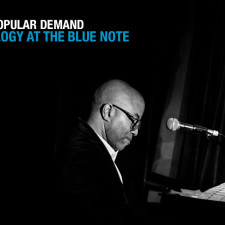Next Semester’s Course Descriptions. If you see me walking down the street with a tick, here’s why.
Freshmen Seminar
That’s My Song!: Musical Genre as Social Contract
Music in American history has been fundamental to identity formation because, as one scholar notes, it comprises “the deepest feelings and qualities that make a group unique. Through moving and sounding together in synchrony, people can experience a feeling of oneness with others.” This freshman seminar examines how various musical genres have served as “social contracts” among audiences throughout the process of this country’s nation building process. Within America’s melting pot ideal, communities of listeners have asserted their powerful convictions about social identity through musical praxis and its “rules of engagement.” The discourses surrounding the notion of “genre” have often made theses meanings legible, audible and powerful for many. From Protestant church performance practices, to minstrelsy, to Tin Pan Alley to rock and hip-hop, the social agreements of musical genres help us understand the dynamism of American identities.
Graduate Seminar
Theories of Identity, Place, and Time in Popular Music Analysis
This seminar will consider the issue of popular music analysis from diverse methodological, theoretical and historical perspectives. Beginning with the formation of the late-19th century American music industry and moving up to the present, we will explore how multiple conceptions of the “popular” have been deployed to understand the music of a wide variety of historical actors, market circumstances and geographic locations. The course examines popular music through the literature produced in the fields of performance studies, musicology, cultural studies, pop music studies, feminist/gender studies, and ethnomusicology, among others. The musical focus will be international, including–but not limited to–styles emerging in the United States, South and West Africa, England, Indonesia, France, the Caribbean and South America. Each week a different combination of styles and methods will be engaged to provide divergent perspectives on the cultural politics of analyzing and writing about popular music. We will also consider weekly other relevant media (visual arts, dance, and literature) to appreciate the powerful meanings conveyed to audiences, critics and scholars in popular musics from around the globe.
Tags: African American Music, popular music, upenn

 Share On Facebook
Share On Facebook Tweet It
Tweet It



![[Philly EVENT] Screening of Amazing: A Film about Bud Powell](https://musiqology.com/blog/wp-content/uploads/2015/03/bud-powell-225x225.jpg)

![[Video] Greg Tate Delivers Timely Keynote Address at SEM](https://musiqology.com/blog/wp-content/uploads/2015/01/gregtate-225x225.jpg)






